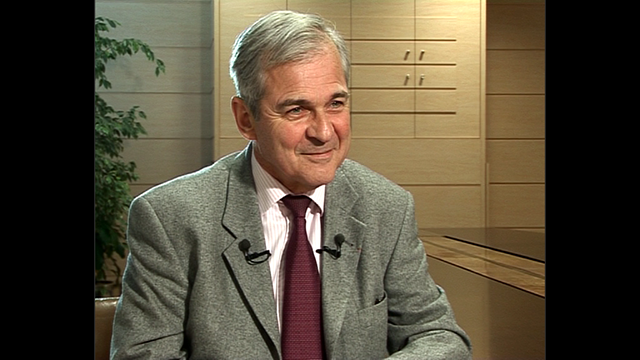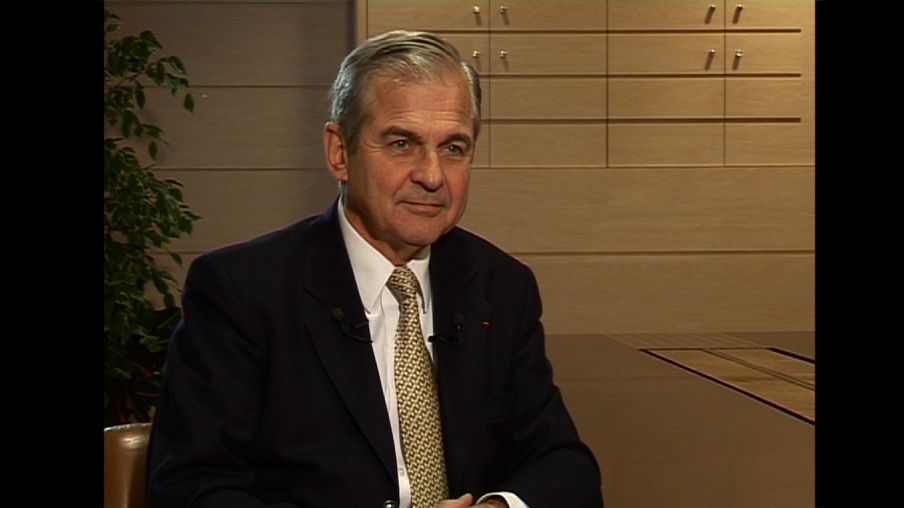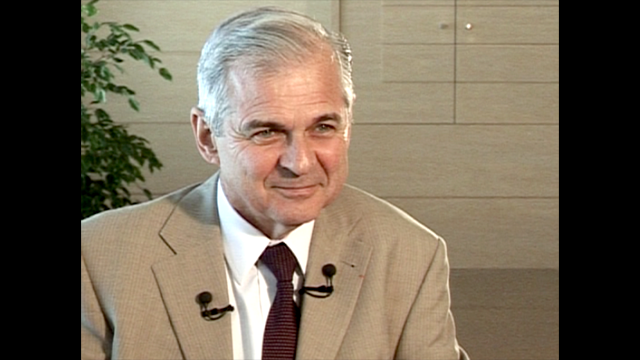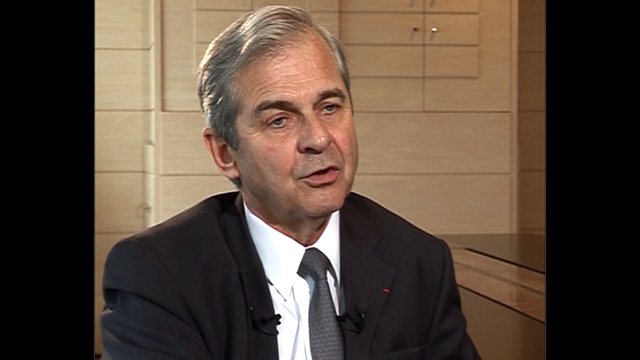EuroBusiness Media (EBM): Technip, one of the world's leading oil services companies, just reported first-half profit. Daniel Valot, welcome. You are the Chairman and CEO of Technip. How would you characterize Technip's first-half results in terms of what you actually reported and what you may have been expecting earlier, at the beginning of the year?
Daniel Valot (DV): Well, we have a big increase in our sales, as was expected, which is the direct result of the massive growth in order intake we had last year. In terms of operating income ratio, we are a notch below last year for the full half-year; we are a bit above last year when we look at the second quarter operating income ratio. So overall it's very comparable. I would say that we are posting better earnings than what was expected by the market in our industries business segment - which is doing fairly well-, probably a bit better than what the market was anticipating on the offshore facilities business segment, a bit lower than was anticipated by the market both for offshore SURF (Subsea Umbilicals, Risers & Flowlines) and onshore downstream, but altogether we are performing reasonably well.
EBM: Looking at your SURF division in particular, the first quarter was in line given the impact of winter weather on your North Sea activity, but the second quarter seems to be below where it normally should be. Could you tell us what is happening here and what the market should expect for the remainder of the year?
DV: First, a quarter is not the appropriate length of time to appreciate operating margins, but nevertheless, it's true that it's a bit below what was expected in the second quarter and that's mainly due to some technical difficulties we had during installation campaigns in deep water. You know these things can be very challenging so we had a bit of difficulty. We do expect the cost of --------- to those difficulties to be offset at a later stage, through the close-out of the contracts with the clients. So I still believe the 10% operating margin is the notional margin we should keep for the SURF business going forward.
EBM: Since the first quarter, when you indicated that older contracts were creating a drag on earnings in 2006, the market has been worried that the margins of recently signed contracts might suffer a similar fate. Could you give us a situation report today about the safety of the margins on these contracts?
DV: On the newer contracts, the ones we signed since the last quarter of 2004, so far we are doing pretty well. In terms of engineering and procurement we are for most of them quite in line with our anticipations. Now there is the remaining portion, which is the actual construction of the project, which is still something to be seen, but so far so good.
EBM: Could you give us an update on how contract close-out negotiations are progressing. Why do you think that your clients are taking so long to settle these?
DV: It's taking long because we are talking big money, and because the oil companies are upset to see their technical costs going up. But we had two important negotiations which were settled since the beginning of this year, and we have several others which are pending on which I do hope we will have good results before the end of this year.
EBM: What are the "challenges" you refer to when you say that your full-year targets of 6.8 billion euros in revenue and 340 million euros in EBIT are achievable but "challenging"?
DV: They are challenging just because there is this overheating in the industry. Some suppliers are no longer interested to quote: when we ask them to quote for the delivery of a specific item some of them say "Sorry guys we are full up we won't even quote a price". We see delivery times for the equipment getting longer and longer, taking more weeks than was the case some three months ago or six months ago. We are seeing some of the contraction subcontractors being so busy that they become more demanding with people like us. So all those challenges need to be managed. I believe we are in a good position to manage them but they are obviously creating additional challenges.
EBM: You have returned more than a third of your estimated 600 million euros of excess cash to shareholders via share buybacks over a relatively short period of time. Could you please tell us how and over what period of time you plan to return the remaining amount?
DV: Well, I would like to be able to return it during, let's say, the next six months or so. I would like this operation to be closed one year after the conversion of the convertibles so next February or March something like this. So we will continue our buy-back programme on the market, based on market opportunities of course, and if its not enough we might also consider other tools or other ways of returning this excess cash to our shareholders - perhaps an increased dividend or an exceptional dividend - we'll look at it towards the end of this year.
EBM: What is the outlook for order intakes in the second half of 2006 and perhaps more importantly what is Technip's philosophy regarding backlog growth?
DV: We are not looking for any major increase in our backlog. What I would like us to do would be to stabilize it towards the high level we reached at the beginning of this year and to take advantage of the current market conditions to improve quite dramatically our risk-reward balance, in other words improve the profit margin and reduce our risk profile. That's the overall philosophy of the company.
EBM: And finally, you are a market leader in the manufacture of flexible sub-sea pipelines and are currently in the process of expanding your production capacity by 30%. Do you have enough and the right kind of capacity to handle the installation of this extra production?
DV: Just an additional word on the previous question. In terms of improvement of profitability, let me point out that during the second quarter our net income is up more than 50% compared to net income for the same quarter last year, so we are doing not so bad in this period.
Now coming to your question about the surf business and what we need in order to keep our number 1 position on this market. What we need to do is to increase the capacity of our plants and the capacity of our fleet. That is exactly what we are doing today. We are expanding the capacity of our two plants in Brazil and in France - the one in Brazil by 50%, the one in France by 20% - and we are adding four new vessels to our fleet - to our specialised fleet of pipe laying and construction - so its mainly construction and DSV, diving support vessels. We are also in the process of thinking about building additional vessels, pipe laying vessels in addition to those four. The end result is that our overall capital expenditure budget this year will be some 50% higher than last year and all the last years in fact - we were at a level of about 130 million euros per year in the last four or five years, we will be at something like 250 this year, so its a major increase - and I would expect that in 2007, next year, again we will be with a very large capital expenditure budget. So we are doing a lot of things in order to continue to improve our leadership position on the SURF market.
EBM: Daniel Valot, Chairman and CEO of Technip, thank you very much indeed.
DV: Thank you.





